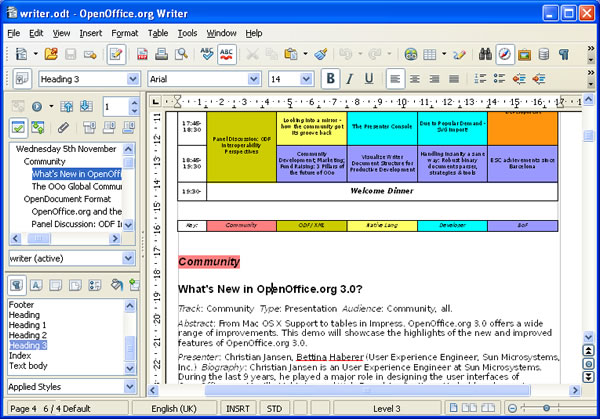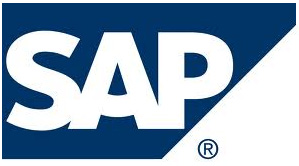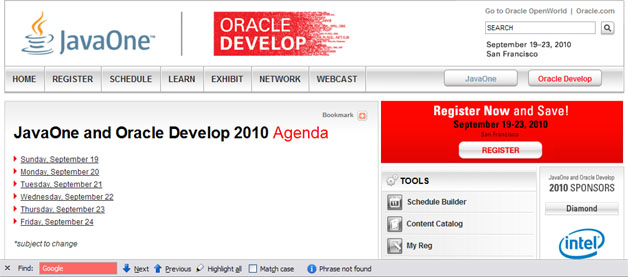Google ran an interesting post from its Senior Vice President and Chief Legal Officer David Drummond on the Official Google Blog today called “When Patents Attack Android.”
It tells a tale of two tech giants teaming up to impede the progress of a third tech giant. More specifically, Google is being attacked through a patent war by Microsoft and Apple (along with Oracle and others). Drummond writes:
They’re doing this by banding together to acquire Novell’s old patents (the “CPTN” group including Microsoft and Apple) and Nortel’s old patents (the “Rockstar” group including Microsoft and Apple), to make sure Google didn’t get them; seeking $15 licensing fees for every Android device; attempting to make it more expensive for phone manufacturers to license Android (which we provide free of charge) than Windows Mobile; and even suingBarnes & Noble, HTC, Motorola, and Samsung. Patents were meant to encourage innovation, but lately they are being used as a weapon to stop it.
A smartphone might involve as many as 250,000 (largely questionable) patent claims, and our competitors want to impose a “tax” for these dubious patents that makes Android devices more expensive for consumers. They want to make it harder for manufacturers to sell Android devices. Instead of competing by building new features or devices, they are fighting through litigation.
Now Google, who has often been called names like “anti-competitive” by Microsoft and other competitors, is calling this whole strategy “anti-competitive”.
“Microsoft and Apple’s winning $4.5 billion for Nortel’s patent portfolio was nearly five times larger than the pre-auction estimate of $1 billion,” Drummond adds. “Fortunately, the law frowns on the accumulation of dubious patents for anti-competitive means — which means these deals are likely to draw regulatory scrutiny, and this patent bubble will pop.”
The Nortel patent portfolio in question is currently under Department of Justice scrutiny. So is Google’s proposed acquisition of AdMeld. Meanwhile, the FTC is investigating Google’s broader business practices.
Various other Googlers are sharing Drummond’s post on Google+. A few are adding their own commentary. Amit Fulay simply added, “Well said David…”
Google’s Jeff Huber added, “Sad when competition shifts from trying to have better products & user experiences, and enabling user choice, to collusion and having more lawyers…”
Update: Microsoft General Counsel Brad Smith tweeted the following:
And…
Microsoft’s Head of Communications Frank Shaw tweeted the following:
The link shows an email, which says:
Brad –
Sorry for the delay in getting back to you — I came down with a 24-hour bug on the way back from San Antonio. After talking with people here, it sounds as though for various reasons a joint bid wouldn’t be advisable for us on this one. But I appreciate your flagging it, and we’re open to discussing other similar opportunities in the future.
I hope the rest of your travels go well, and I look forward to seeing you again soon.
– Kent
Update 2: Google Has updated its original post in response to Microsoft:
Drummond writes:
It’s not surprising that Microsoft would want to divert attention by pushing a false “gotcha!” while failing to address the substance of the issues we raised. If you think about it, it’s obvious why we turned down Microsoft’s offer. Microsoft’s objective has been to keep from Google and Android device-makers any patents that might be used to defend against their attacks. A joint acquisition of the Novell patents that gave all parties a license would have eliminated any protection these patents could offer to Android against attacks from Microsoft and its bidding partners. Making sure that we would be unable to assert these patents to defend Android — and having us pay for the privilege — must have seemed like an ingenious strategy to them. We didn’t fall for it.
Ultimately, the U.S. Department of Justice intervened, forcing Microsoft to sell the patents it bought and demanding that the winning group (Microsoft, Oracle, Apple, EMC) give a license to the open-source community, changes the DoJ said were “necessary to protect competition and innovation in the open source software community.” This only reaffirms our point: Our competitors are waging a patent war on Android and working together to keep us from getting patents that would help balance the scales.
Update 3: Frank Shaw fired back again with a series of tweets:









 SAP is defending its subsidiary by saying that TN customers authorized them to download files on their behalf, a defense Eric Goldman calls the "proxy defense" that’s doomed to fail.<
SAP is defending its subsidiary by saying that TN customers authorized them to download files on their behalf, a defense Eric Goldman calls the "proxy defense" that’s doomed to fail.< 
 Then another important detail is Google’s assertion that "Oracle’s claims . . . for alleged infringement of the Patents-in-Suit are barred by the doctrine of misuse."
Then another important detail is Google’s assertion that "Oracle’s claims . . . for alleged infringement of the Patents-in-Suit are barred by the doctrine of misuse." "I believe Oracle’s strategy of combining software with hardware will enable Oracle to beat IBM in both enterprise servers and storage," said Hurd. "Exadata is just the beginning. We have some exciting new systems we are going to announce later this month at Oracle OpenWorld. I’m excited to be a part of the most innovative technology team in the IT industry."
"I believe Oracle’s strategy of combining software with hardware will enable Oracle to beat IBM in both enterprise servers and storage," said Hurd. "Exadata is just the beginning. We have some exciting new systems we are going to announce later this month at Oracle OpenWorld. I’m excited to be a part of the most innovative technology team in the IT industry."

